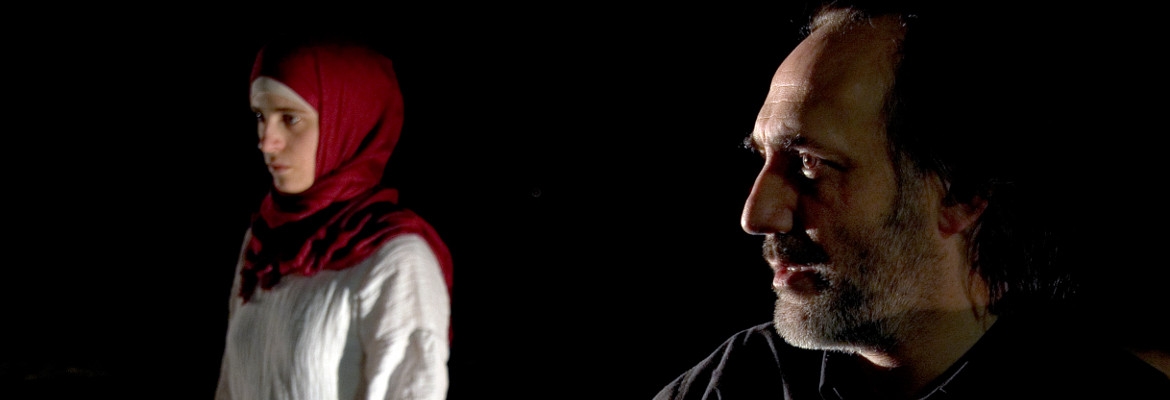ANTIGONE
with Fiorella Tommasini, Chiara Elisa Rossini, Diana Ferrantini, Katia Raguso, Mario Previato, Alessio Papa, Massimo Munaro
dramaturgy, music and direction Massimo Munaro
production Teatro del Lemming, La Biennale di Venezia
"Myth has never happened but is always living".
Thus is for Antigone. For hundreds and hundreds centuries, this myth has been rewritten, reconsidered and reread in endless ways. And in this myth Antigone's opposer, Creonte, is always linked to the young heroine.
On the one hand an alone young woman that has got the full weight of a humanity that must be protected, on the other a man who carries the weight of a law that must be respected.
When two fundamentalisms collide and do not bend, they destroy themselves.
This possibility of containing the opposites, of being a boundary line, that divides but also puts together different civilizations, is the most important characteristic of the Mediterranean Sea.
The Mediterranean is composed indeed by a multiplicity of voices, none of wich can choke the other: the penality, as happens in Antigone's tragedy, is the catastrophe for everybody.
Fundamentalisms are always more than one, but, as says Franco Cassano, is better thinking that "nowadays they have got just one shape, the one of the turban and of the suicidal martyrs. But what is fundamentalism? Isn't it the claim of exporting ones to the detriment of the differences of the others?"
In classical Greece, the origin of Mediterranean civilization, everyone has got his reasons: both Greeks and barbarians, both Antigone and Creonte.
The blue surface of the Mediterranean still reflects their figures: showing us the face of the other it shows us that that face isn't different from ours.
There's one thing of greek theatre that is disappeared from nowadays theatre: the central function of CHORUS. For the Greeks, the chorus was the polis' mirror, the polis' voice. The disappearance of the chorus points out the distance from the stage and the audience. Nowadays greek polis has become a globalized and fragmentary world. The polis is the world. But is a world where everything seems to be nearby while in reality is hopelessly distant. Is a world where everyone of us, as Antigone, could lose all rights of citizenship. Tensions bounce from one side of the globe to the other, creating neverended disasters.
They end up in the simultaneous barrage of images, merchandise, news, and they appear just a kind of entertainment, leaving us silent and powerless.
Here-hence starts Lemming's Antigone.
In Sophocles, the chorus of the old, paralyzed between the two main characters, sometimes sides Antigone and sometimes sides Creonte: it never knows how to decide. In Lemming's Antigone, the audience is the chorus that must decide: they could decide to side Antigone or to side Creonte. In Lemming's Antigone we have to decide, we have to take the tragic blame of a choice.


